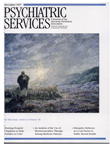The Integration of Pharmacological and Nonpharmacological Treatments in Drug/Alcohol Addictions
This colorful volume—the cover features a panoply of multicolored drug tablets and capsules—is really a collection of seven journal articles simultaneously published in the Journal of Addictive Diseases. The major points in the papers are summarized by the editor in a few pages at the beginning of the text. The individual contributions are each reasonably self-sufficient, although of variable quality and editorial oversight.
I found the flow sheets for treatment strategies for psychosis, depression, and anxiety disorders in the chapter on psychopharmacotherapy of addictive and comorbid disorders to be a novel approach for psychiatry and likely useful in the teaching of various audiences who may be less versed in pharmacotherapy. The multipage table listing medications that have been evaluated for or are under consideration for treatment of opiate, cocaine, and alcohol abuse and dependence is very complete and quite useful. I was particularly intrigued by the chapter that lists current reference sources for topics discussed in this collection, including indexing and abstracting sources, current awareness publications, and on-line bibliographic databases, which is a rather unusual way to connect the reader with the complex and rapidly changing spectrum of pharmacological and nonpharmacological treatments in the addictions.
Of particular importance in the book is the concept of "generalized vulnerability to drug and alcohol addiction," which provides a scientific perspective for the old Alcoholics Anonymous (AA) adage that "a drug is a drug." Furthermore, this viewpoint is effectively combined with the idea that there is a new frontier of pharmacotherapy of addictive disorders, which, although counterintuitive to the tenets of AA, nevertheless makes eminent sense.
All told, this collection is a comprehensive view of an area that should be of interest to the treatment community, and in particular to the general psychiatrist who wishes to update his or her knowledge of addiction psychiatry.
Dr. Martin is director of the division of addiction medicine in the department of psychiatry at Vanderbilt University Medical Center in Nashville, Tennessee.



